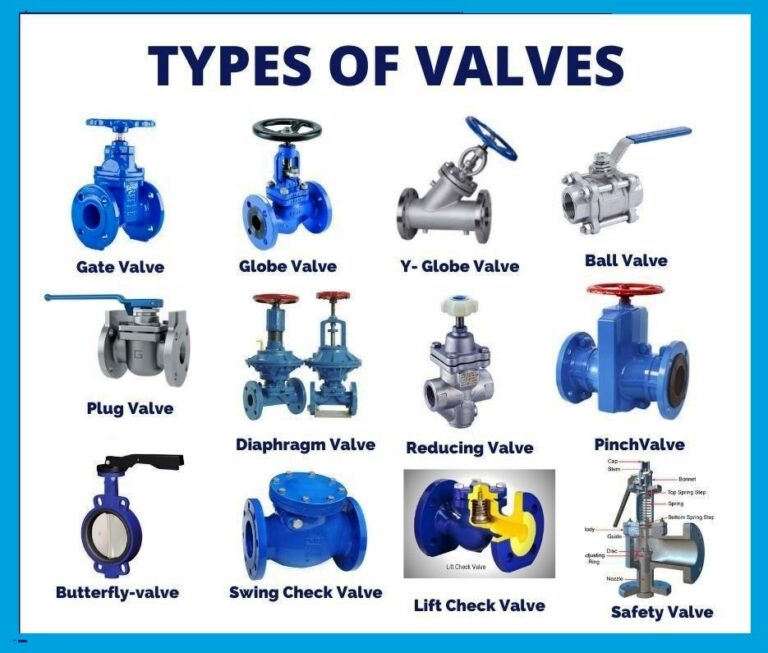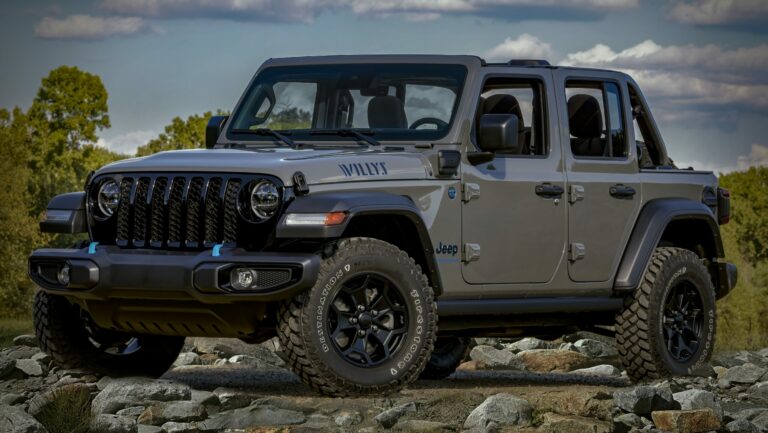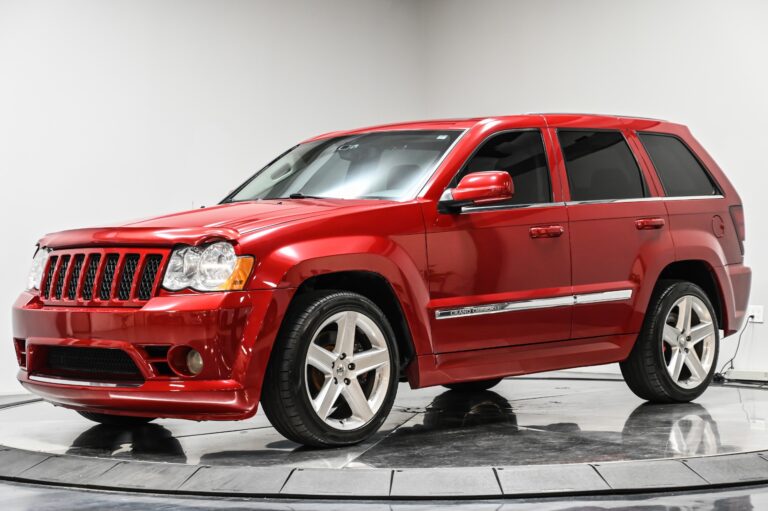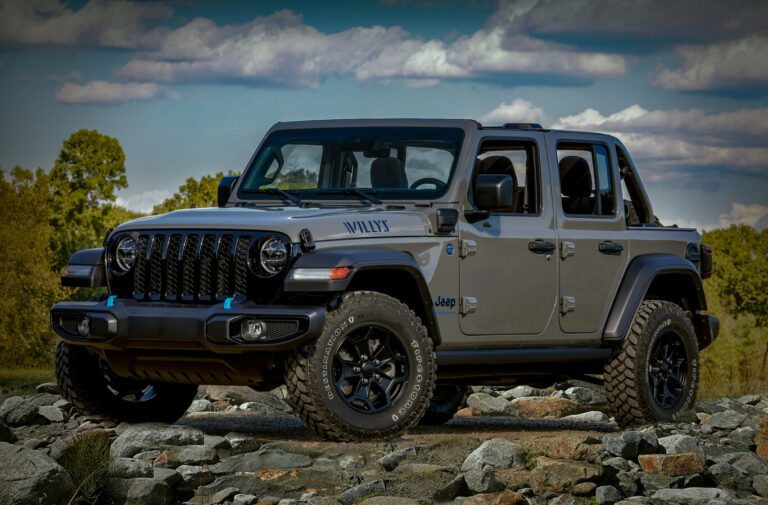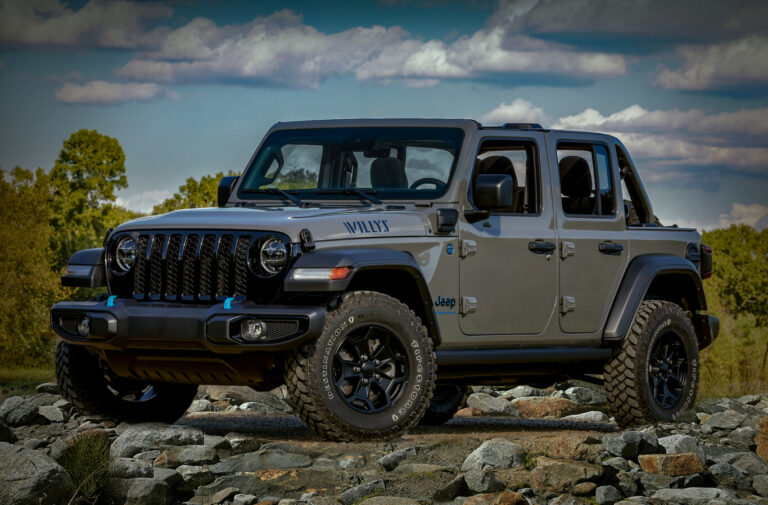Jeep Stock Rims For Sale: Your Ultimate Guide to Authenticity and Value
Jeep Stock Rims For Sale: Your Ultimate Guide to Authenticity and Value jeeps.truckstrend.com
The iconic Jeep – a symbol of adventure, capability, and rugged individualism. Whether you’re a seasoned off-roader, a daily commuter, or a proud owner looking to restore your vehicle’s original glory, the wheels your Jeep rides on are fundamental to its performance, safety, and aesthetic. While the aftermarket offers an endless array of customization options, there’s a significant and often overlooked market for Jeep stock rims for sale.
"Jeep stock rims" refers to the original equipment manufacturer (OEM) wheels that came fitted on your Jeep from the factory. These are not just any wheels; they are engineered and tested by Jeep to meet specific performance, safety, and durability standards for that particular model. For many Jeep owners, acquiring stock rims – whether to replace a damaged wheel, revert to an original look, have a full-size spare, or simply find a cost-effective alternative to brand-new aftermarket options – presents a compelling and practical choice. This comprehensive guide will navigate the world of Jeep stock rims for sale, offering insights, tips, and practical advice to help you make an informed decision.
Jeep Stock Rims For Sale: Your Ultimate Guide to Authenticity and Value
Why Choose Jeep Stock Rims? Understanding Their Enduring Appeal
Before diving into where and how to find them, it’s crucial to understand the distinct advantages of opting for Jeep stock rims over their aftermarket counterparts.
- Authenticity and OEM Fit: This is perhaps the most significant benefit. Stock rims are guaranteed to fit your Jeep perfectly, ensuring proper bolt pattern, offset, backspacing, and diameter. This eliminates guesswork, potential rubbing issues, and ensures your vehicle’s original handling characteristics are maintained. For collectors or those looking to preserve their Jeep’s resale value, maintaining originality is key.
- Durability and Reliability: OEM rims are designed and rigorously tested to withstand the specific loads, stresses, and conditions your Jeep is intended for. They are built to last, often using high-quality materials and manufacturing processes that might exceed some budget aftermarket options.
- Cost-Effectiveness: One of the primary drivers for seeking stock rims for sale is the price. Used or "take-off" stock rims are significantly more affordable than purchasing new aftermarket wheels, making them an excellent budget-friendly solution for replacements or spares. Even new OEM rims can sometimes be found at competitive prices compared to high-end aftermarket brands.
- Maintaining Resale Value: A Jeep that retains its original components, including its wheels, often commands a higher resale value. Prospective buyers, especially those seeking a classic or unmolested vehicle, appreciate originality.
- Specific Aesthetic: Many Jeep models boast iconic stock rim designs. From the rugged steel wheels of an older Wrangler to the polished alloys of a Grand Cherokee, these designs are often timeless and perfectly complement the vehicle’s overall look.
- Direct Replacement or Spare: If you’ve damaged a single rim, finding an identical stock replacement is far easier and cheaper than buying a whole new set of aftermarket wheels. They are also ideal for creating a matching full-size spare tire.
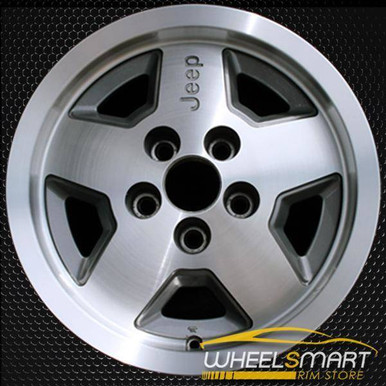
Navigating the World of Jeep Stock Rim Types
Jeep has produced a vast array of models over the decades, each with its unique set of stock rims. Understanding the different types and their specifications is paramount for ensuring compatibility. Key factors include:
- Bolt Pattern: This is the most critical specification. It refers to the number of lug holes and the diameter of the circle they form. Common Jeep bolt patterns include 5×4.5 (older Wranglers, Cherokees), 5×5 (JK/JL Wranglers, Grand Cherokees), 5×5.5 (older full-size Jeeps), and others for smaller models like the Renegade or Compass.
- Diameter: The rim size in inches (e.g., 15", 17", 20").
- Width: The rim’s width in inches (e.g., 7", 8.5").
- Offset/Backspacing: How far the mounting surface is from the center of the wheel. This affects how far the wheel sticks out or tucks in.

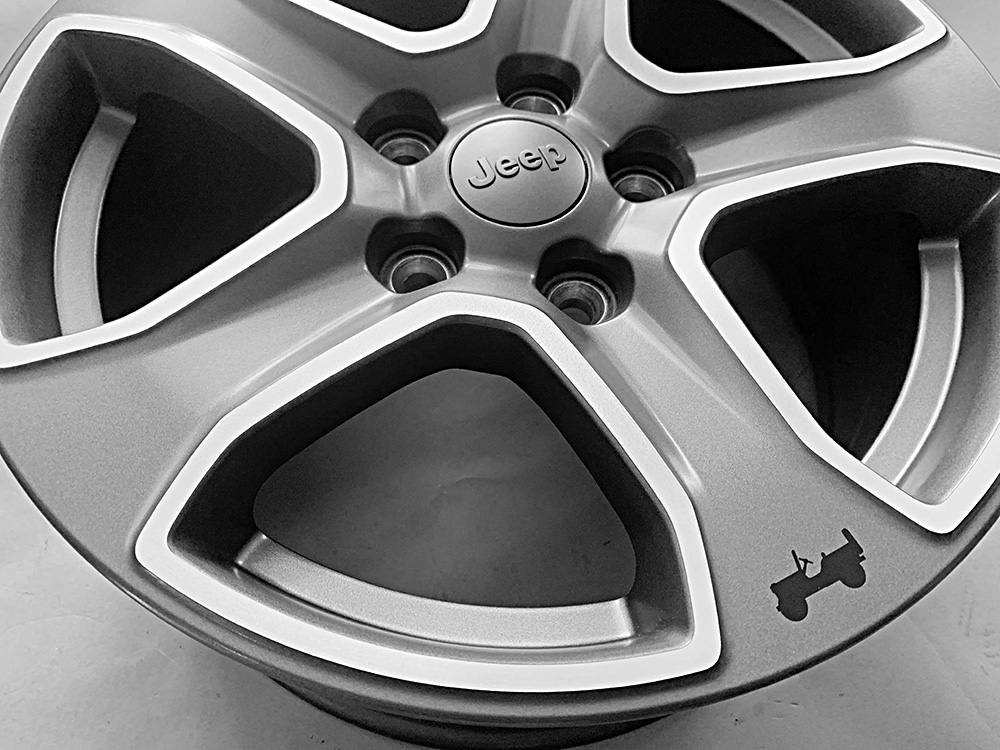
Here’s a brief overview of common stock rim types by popular Jeep models:
- Jeep Wrangler (YJ, TJ, JK, JL):
- YJ/TJ: Often 15×7 or 15×8 steel or alloy wheels (5×4.5 bolt pattern). Iconic "Gambler" alloys were popular.
- JK: Typically 16×7, 17×7.5, or 18×7.5 alloy wheels (5×5 bolt pattern). Rubicon models feature distinct 17-inch designs, while Sahara and Sport models have their own variants.
- JL/JT (Gladiator): Similar to JK but often with updated designs. 17-inch and 18-inch options are common, including the signature Rubicon and Sahara wheels (5×5 bolt pattern).
- Jeep Grand Cherokee (ZJ, WJ, WK, WK2, WL):
- Generally feature larger, more road-oriented alloy wheels, ranging from 16-inch to 20-inch or even 21-inch for higher trims. Bolt patterns vary (e.g., 5×4.5 for ZJ/WJ, 5×5 for WK/WK2). Designs range from multi-spoke to polished five-spoke.
- Jeep Cherokee (XJ, KL):
- XJ: Known for simple, robust 15×7 steel or alloy wheels (5×4.5 bolt pattern).
- KL: Modern Cherokee models use various 17-inch to 19-inch alloy designs with smaller bolt patterns.
- Jeep Compass/Patriot/Renegade: These models use smaller, car-based platforms, typically with 16-inch to 19-inch wheels and different bolt patterns (e.g., 5x110mm, 5x100mm).
Where to Find Jeep Stock Rims For Sale: Your Buying Guide
The market for used and new take-off Jeep stock rims is robust. Here are the best places to look:
- Online Marketplaces:
- eBay: A vast selection, from individual rims to full sets. Use specific search terms like "JK Rubicon 17 inch rims" or "Grand Cherokee WK2 18 inch wheels."
- Craigslist/Facebook Marketplace: Excellent for local deals, allowing you to inspect the rims in person and avoid shipping costs. Search within your local area.
- Dedicated Jeep Forums/Groups: Websites like JL Forum, JK Forum, Cherokee Forum, or Facebook groups dedicated to specific Jeep models often have "For Sale" sections where members sell their take-off rims after upgrading. These are often trustworthy sources from fellow enthusiasts.
- Salvage Yards / Auto Recyclers: These are goldmines for OEM parts. When Jeeps are totaled, their undamaged parts, including rims, are salvaged. Prices are often very competitive. Call ahead to check inventory.
- Local Tire and Custom Wheel Shops: Many customers upgrade their wheels, leaving their perfectly good stock rims behind. These shops may sell them or know who does.
- Jeep Dealerships: While typically more expensive, dealerships sometimes have new "take-off" sets from vehicles that were immediately customized or can order specific OEM replacements.
- Specialty Used Wheel Retailers: There are businesses that specialize in buying and selling used OEM wheels. A quick online search for "used OEM wheels [your city]" might reveal local options.
Important Considerations When Buying Used Jeep Stock Rims
Buying used requires diligence. A thorough inspection and understanding of specifications can save you headaches later.
- Verify Compatibility:
- Bolt Pattern: Absolutely critical. Measure or look up your Jeep’s exact bolt pattern and ensure the rims match.
- Diameter, Width, Offset/Backspacing: Confirm these match your current setup or are within acceptable limits for your specific Jeep model and desired tire size. Consult your owner’s manual or online forums for stock specifications.
- Thorough Inspection of Condition:
- Cracks or Bends: These are structural damages that compromise safety and cannot be reliably repaired. Avoid rims with cracks or visible bends. Spin the rim to check for wobbles.
- Curb Rash/Scratches: Cosmetic damage from hitting curbs. Minor rash can often be repaired or touched up, but significant damage might indicate a harder impact.
- Corrosion/Pitting: Common on older aluminum rims, especially in areas with road salt. Check the bead seating area for significant corrosion, as it can lead to slow air leaks.
- Paint/Finish Quality: Check for peeling clear coat, fading, or significant paint chips.
- Lug Holes: Ensure they aren’t elongated or damaged, which could lead to improper lug nut seating.
- Authenticity: Be wary of replicas or aftermarket wheels marketed as OEM. Look for Jeep part numbers stamped on the inside of the rim.
- Price vs. Value: Don’t just look for the cheapest option. A slightly higher price for rims in excellent condition is often a better investment than saving a few dollars on a compromised set.
- Shipping Costs: For online purchases, factor in shipping, which can be substantial for bulky items like wheels. Local pickup is always preferred.
- Quantity: Decide if you need a full set of four or five (for a matching spare) or just an individual rim. Sellers often prefer to sell full sets.
Tips for a Smooth Purchase and Installation
- Ask for Clear, High-Resolution Photos: If buying online, request multiple angles, close-ups of any imperfections, and shots of the part numbers.
- Get Seller Information: Ask for the year, make, and model of the Jeep the rims came off. This helps verify compatibility.
- Bring a Friend and Tools (for local pickup): A second pair of eyes for inspection, and a tape measure to verify dimensions.
- Consider New Lug Nuts: If your current lug nuts are worn or if the new rims require a different style (e.g., acorn vs. flat-seat), budget for new ones.
- TPMS Sensors: Modern Jeeps use Tire Pressure Monitoring System (TPMS) sensors. If your new-to-you rims don’t include them, you’ll need to transfer your old ones or purchase new ones and have them programmed.
- Professional Installation: Always have tires mounted and balanced by a reputable professional. They can also do a final check for any issues.
Estimated Price Table for Jeep Stock Rims For Sale (Per Rim)
Note: Prices are highly variable based on condition, rarity, location, and whether sold individually or as a set. These are general ranges for used rims.
| Jeep Model/Rim Type (Example) | Common Diameter | Condition (Approx.) | Typical Price Per Rim (USD) | Notes & Considerations |
|---|


